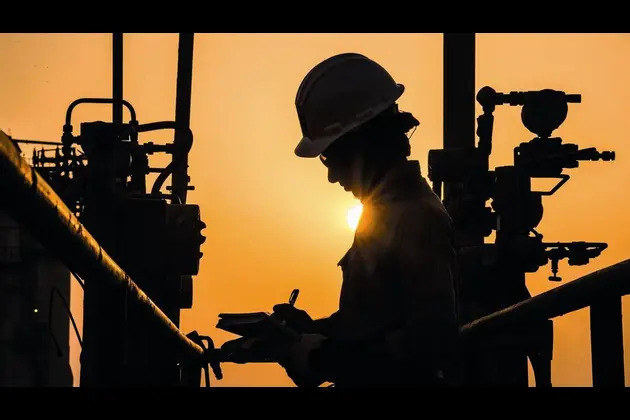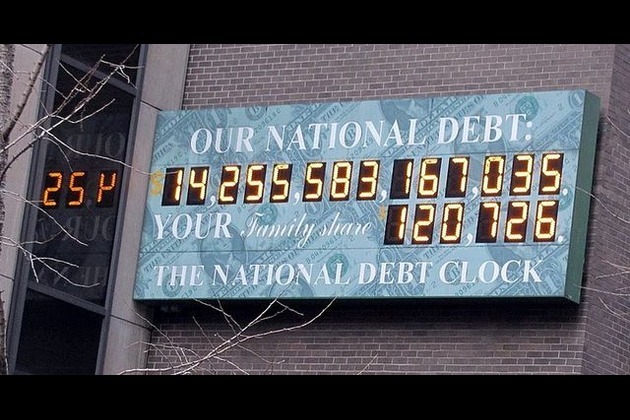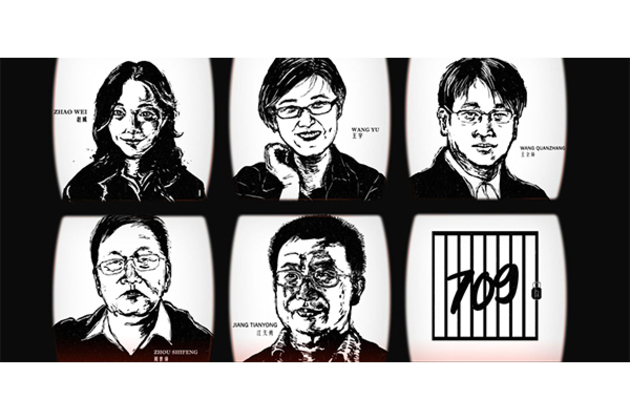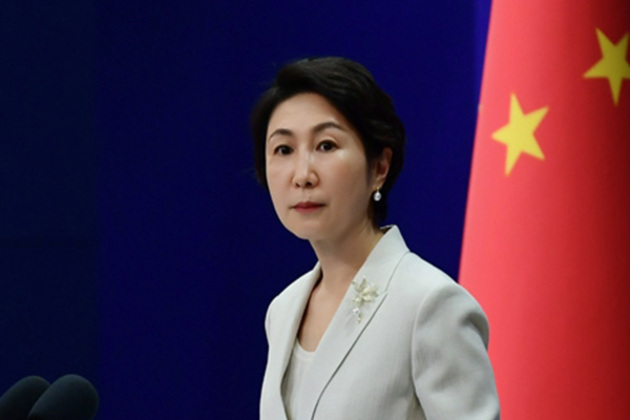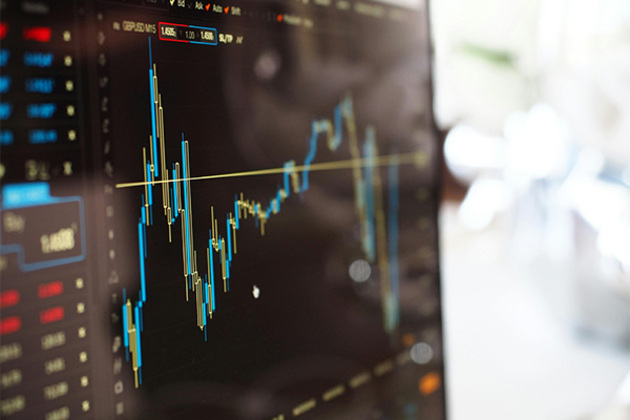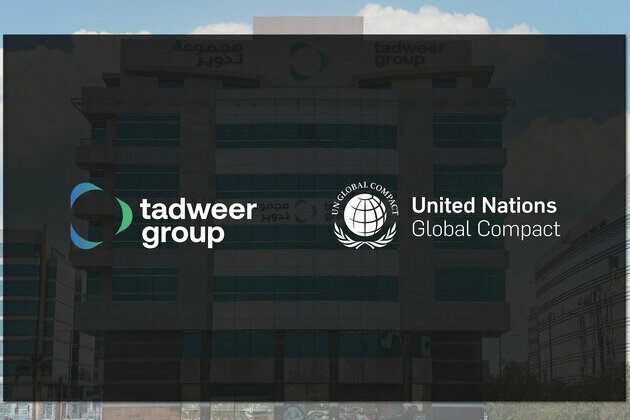Inflation, Unrest Challenge Bangladesh's 'Miracle Economy'
Voice of America
23 Sep 2022, 19:36 GMT+10
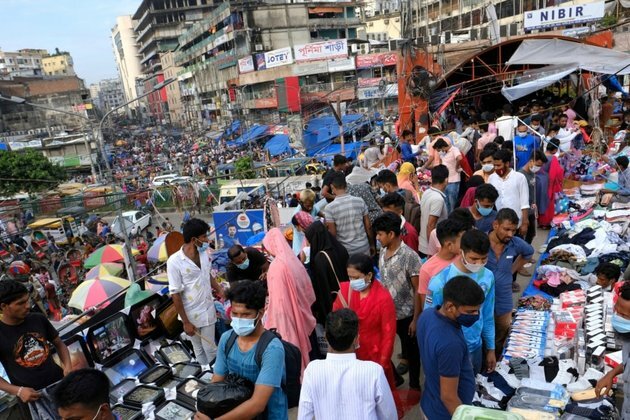
Dhaka, Bangladesh - Standing in line to try to buy food, Rekha Begum is distraught. Like many others in Bangladesh, she is struggling to find affordable daily essentials like rice, lentils and onions.
'I went to two other places, but they told me they don't have supplies. Then I came here and stood at the end of the queue,' said Begum, 60, as she waited for nearly two hours to buy what she needed from a truck selling food at subsidized prices in the capital, Dhaka.
Bangladesh's economic miracle is under severe strain as fuel price hikes amplify public frustrations over rising costs for food and other necessities. Fierce opposition criticism and small street protests have erupted in recent weeks, adding to pressures on the government of Prime Minister Sheikh Hasina, which has sought help from the International Monetary Fund to safeguard the country's finances.
Experts say Bangladesh's predicament is nowhere nearly as severe as Sri Lanka's, where months' long unrest led its long-time president to flee the country and people are enduring outright shortages of food, fuel and medicines, spending days in queues for essentials. But it faces similar troubles: excessive spending on ambitious development projects, public anger over corruption and cronyism and a weakening trade balance.
Such trends are undermining Bangladesh's impressive progress, fueled largely by its success as a garment manufacturing hub, toward becoming a more affluent, middle-income country.
The government raised fuel prices by more than 50% last month to counter soaring costs due to high oil prices, triggering protests over the rising cost of living. That led authorities to order the subsidized sales of rice and other staples by government-appointed dealers.
The latest phase of the program, which began Sept. 1, should help about 50 million people, said Commerce Minister Tipu Munshi.
'The government has taken a number of measures to reduce pressures on low-income earners. That is impacting the market and keeping prices of daily commodities competitive,' he said.
The policies are a stopgap for bigger global and domestic challenges.
The war in Ukraine has pushed higher prices of many commodities at a time when they already were surging as demand recovered with a waning of the coronavirus pandemic. In the meantime, countries like Bangladesh, Sri Lanka and Laos - among many - have seen their currencies weaken against the dollar, adding to the costs for dollar-denominated imports of oil and other goods.
To ease the strain on public finances and foreign reserves, the authorities put a moratorium on big, new projects, cut office hours to save energy and imposed limits on imports of luxury goods and non-essential items, such as sedans and SUVs.
'The Bangladesh economy is facing strong headwinds and turbulence,' said Ahmad Ahsan, an economist and director of the Dhaka-based Policy Research Institute, a think tank. 'Suddenly we are back to the era of rolling power cuts, with the taka and the forex reserves under pressure,' he said.
Millions of low-income Bangladeshis, like Begum, whose family of five can barely afford to eat fish or meat even once a month, still struggle to put food on the table.
Bangladesh has made huge strides in the past two decades in growing its economy and fighting poverty. Investments in garment manufacturing have provided jobs for tens of millions of workers, mostly women. Exports of apparel and related products account for more than 80% of its exports.
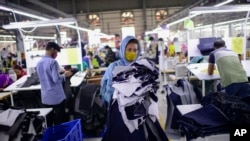
But with fuel costs so high, authorities shut diesel-run power plants that produced at least 6% of total production, cutting daily power generation by 1,500 megawatts and disrupting manufacturing.
Imports in the last fiscal year, ending in June, 2022, rose to $84 billion, while exports have fluctuated, leaving a record current account deficit of $17 billion.
More challenges are ahead.
Deadlines are fast approaching for repaying foreign loans related to at least 20 mega infrastructure projects, including the $3.6 billion River Padma bridge built by China and a nuclear power plant mostly funded by Russia. Experts say Bangladesh needs to prepare for when repayment schedules ramp up between 2024 and 2026.
In July, in a move economists view as a precautionary measure, Bangladesh sought a $4.5 billion loan from the International Monetary Fund, becoming the third country in South Asia to recently seek its help after Sri Lanka and Pakistan.
Finance Minister A.H.M. Mustafa Kamal said that the government asked the IMF to begin formal negotiations on loans 'for balance of payments and budgetary assistance.' The IMF said it was working with Bangladesh to draw up a plan.
Bangladesh's foreign reserves have been falling, potentially undermining its ability to meet its loan obligations. By Wednesday they had dropped to $36.9 billion from $45.5 billion a year earlier, according to the central bank.
Usable foreign reserves would be about $30 billion, said Zahid Hussain, a former chief economist of the World Bank's Dhaka office.
'I would not say this is a crisis situation. This is still enough to meet three months of imports, three and half months of imports. But it also means that ... you do not have a lot of room for maneuvering on the reserve front,' he said.
Still, despite what some economists say is excessive spending on some costly projects, Bangladesh is better equipped to weather hard times than some other countries in the region.
Its farm sector - tea, rice and jute are major exports - is an effective 'shock absorber,' and its economy, four to five times larger than Sri Lanka's, is less vulnerable to outside calamities like a downturn in tourism.
The economy is forecast to grow at a 6.6% pace this fiscal year, according to the Asia Development Bank's latest forecast, and the country's total debt is still relatively small.
'I think in the current context, the most important difference between Sri Lanka and Bangladesh is the debt burden, particularly the external debt,' said Hussain.
Bangladesh's external debt is under 20% of its gross domestic product, while Sri Lanka's was around 126% in the first quarter of 2022.
'So, we have some space. I mean debt as a source of stress on the macroeconomy is not much of a much problem yet,' he said.
Waiting in a line to buy subsidized food, 48-year-old Mohammed Jamal said he was not feeling such leeway for his own family.
'It has become unbearable trying to maintain our standard of living,' Jamal said. 'Prices are just out of reach for the common people,' he said. 'It's tough living this way.'
 Share
Share
 Tweet
Tweet
 Share
Share
 Flip
Flip
 Email
Email
Watch latest videos
Subscribe and Follow
Get a daily dose of Baton Rouge Post news through our daily email, its complimentary and keeps you fully up to date with world and business news as well.
News RELEASES
Publish news of your business, community or sports group, personnel appointments, major event and more by submitting a news release to Baton Rouge Post.
More InformationBusiness
SectionSaudi Aramco plans asset sales to raise billions, say sources
DUBAI, U.A.E.: Saudi Aramco is exploring asset sales as part of a broader push to unlock capital, with gas-fired power plants among...
Russia among 4 systemic risk countries for Italian banks
MILAN, Italy: Italian regulators have flagged four non-EU countries—including Russia—as carrying systemic financial risk for domestic...
US debt limit raised, but spending bill fuels fiscal concerns
NEW YORK CITY, New York: With just weeks to spare before a potential government default, U.S. lawmakers passed a sweeping tax and spending...
Shein hit with 40 million euro fine in France over deceptive discounts
PARIS, France: Fast-fashion giant Shein has been fined 40 million euros by France's antitrust authority over deceptive discount practices...
Meta hires SSI CEO Gross as AI race intensifies among tech giants
PALO ALTO/TEL AVIV: The battle for top AI talent has claimed another high-profile casualty—this time at Safe Superintelligence (SSI),...
Engine defect prompts Nissan to recall over 443,000 vehicles
FRANKLIN, Tennessee: Hundreds of thousands of Nissan and Infiniti vehicles are being recalled across the United States due to a potential...
World
SectionUS debt limit raised, but spending bill fuels fiscal concerns
NEW YORK CITY, New York: With just weeks to spare before a potential government default, U.S. lawmakers passed a sweeping tax and spending...
Ten years after '709' crackdown, global call grows to hold China accountable
London [UK], July 7 (ANI): Ten years after China launched a sweeping crackdown on human rights lawyers, international rights groups...
China opposes tariff wars, coercion after Trump's threat to BRICS countries
Beijing [China], July 7 (ANI): China on Monday responded to US President Donald Trump's threat of imposing an additional 10 per cent...
Indian markets hold steady, close flat amid US tariff uncertainty
Mumbai (Maharashtra) [India], July 7 (ANI): Indian stock benchmarks closed their first day of the week with slight gains, as investors...
Pakistan: PTI slams perk hike for Punjab ministers amid public crisis
Lahore [Pakistan], July 7 (ANI): The Pakistan Tehreek-i-Insaf (PTI) has strongly condemned the recent increase in privileges for the...
Tadweer Group joins United Nations Global Compact
ABU DHABI, 7th July 2025 (WAM) -- Tadweer Group, the sole authority for waste management in the Emirate of Abu Dhabi and a subsidiary...

